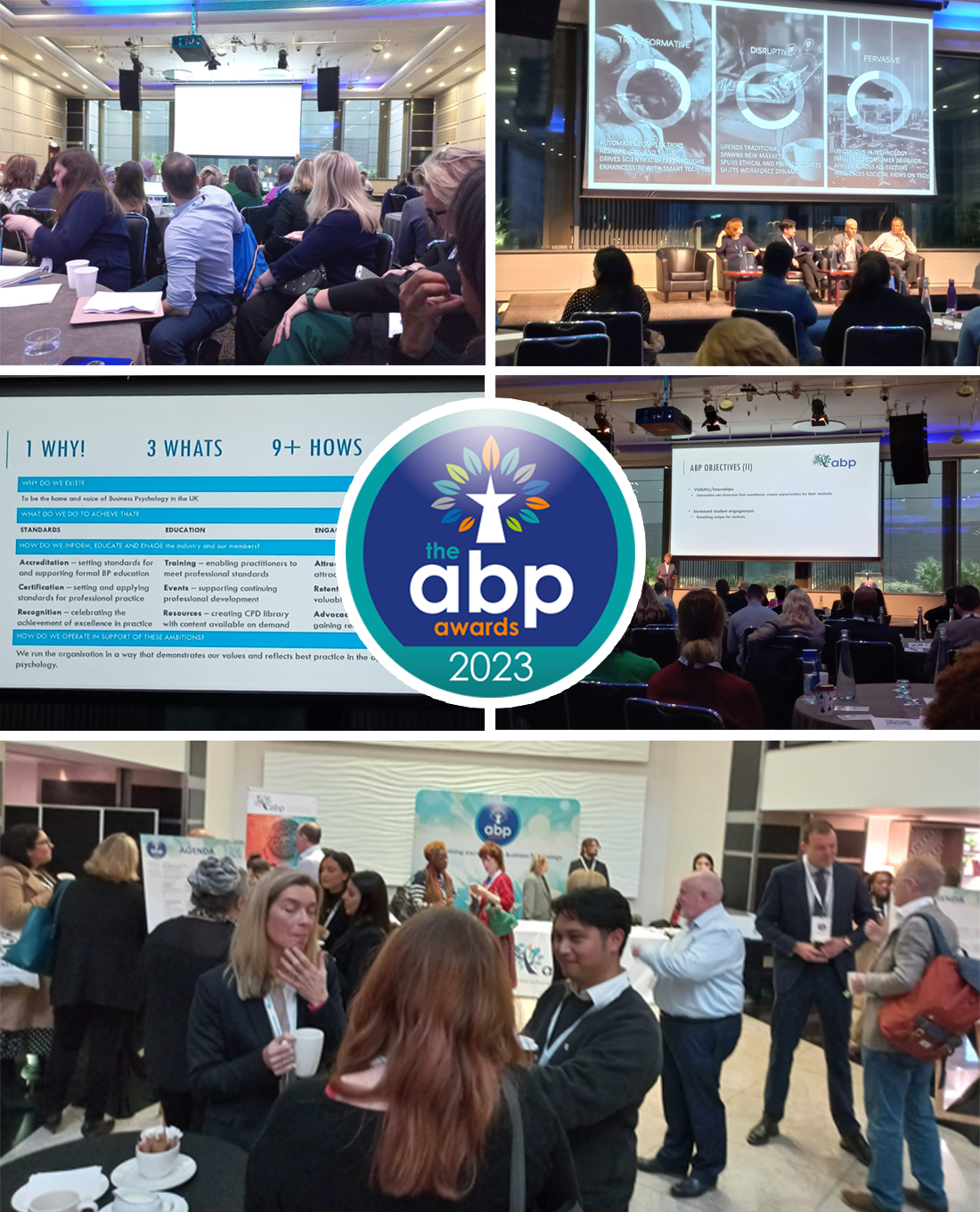
The British Association for Business Psychology (BPA) Awards 2023 ceremomy, London, November 8, 2023
Each year since 2014, the British Association for Business Psychology (ABP) make a statement by celebrating some of the most striking success stories in the field, with a special focus on industrial/organisation impact of applied psychology. Both individuals and organisations submitted their case studies, research, findings, and innovations to a diverse panel of ten eminent judges convened by Anton Fishman of Fishman & Partners Ltd. The winners are acknowledged at an Annual Awards event, which is neither a traditional conference nor just a ceremony and provides first-hand knowledge of what works, moves the slider, levels the playing field and opens new perspectives in business psychology.
Among the finalists, there were several business consultants, assessment creators, talent management or leadership coaching organisations that routinely work with cApStAn Linguistic Quality Control when data needs to be collected in different languages and in diverse cultural contexts. As a founder of cApStAn, I felt that this was a great opportunity to hop on the Eurostar, cross the Channel, and take the industry’s pulse.
I was not disappointed. The opening keynote by John Amaechi OBE was a fresh, vivid, thought-provoking invitation to challenge how we saw leadership. It would have roused a meditating monk! Then Dr Dawn Nicholson presented the Biz Psych Cup, which involves students in researching and solving real business problems. I enjoyed listening to a student in linguistics completing A-levels in German and Psychology, who is a Lumina practitioner (and yes, Lumina Learning was present, too).
Then we had round tables: there were eight tables with 10-12 chairs around them. On the large screen, one could see which Award finalist would be presenting their submission. One could choose, and in each of the three round table sessions, the finalists presented twice: ten minutes to explain their achievement, ten minutes for question and answers. So, I could listen to six speakers unpack their achievement, participate in six discussions, interact with six groups of people whose curiosity was akin to mine. An excellent buffet lunch was served between the first and the second of the three round table sessions, and discussions were lively and humorous.
A masterful presentation by Glenn Morgan from Airfusion Ventures introduced the closing panel. Glenn showed us what AI already does, with very concrete examples: a Chinese farmer created a marketplace for his produce with just his smartphone. It took Glenn 8 minutes to create a video of the video of the moderator speaking Mandarin with his own voice and synced lipping. He showed how Dall-e could merge Munch, Van Gogh and Hokusai in a single virtual painting. The audience was stunned, and the debate echoed mixed feelings about the relevance and threat of AI for business psychology.
The evening was reserved for a reception, dinner, and formal awards ceremony, but I chose to take the last train back to Brussels after a well-spent day, during which I reconnected with people I only see virtually, and I was grateful for this opportunity to learn.